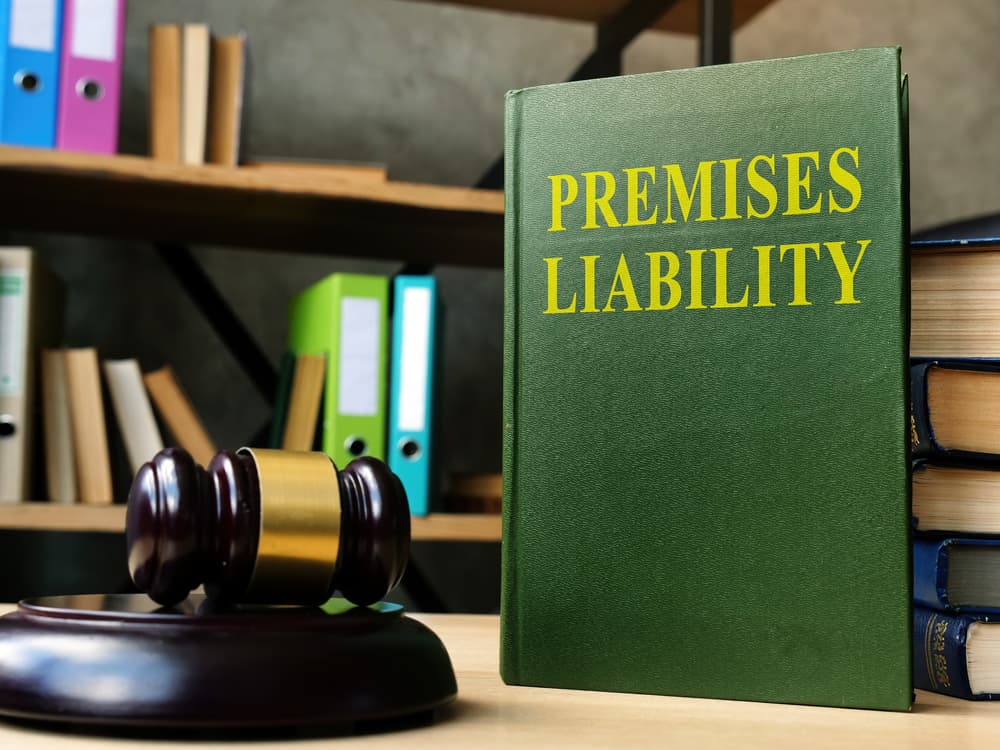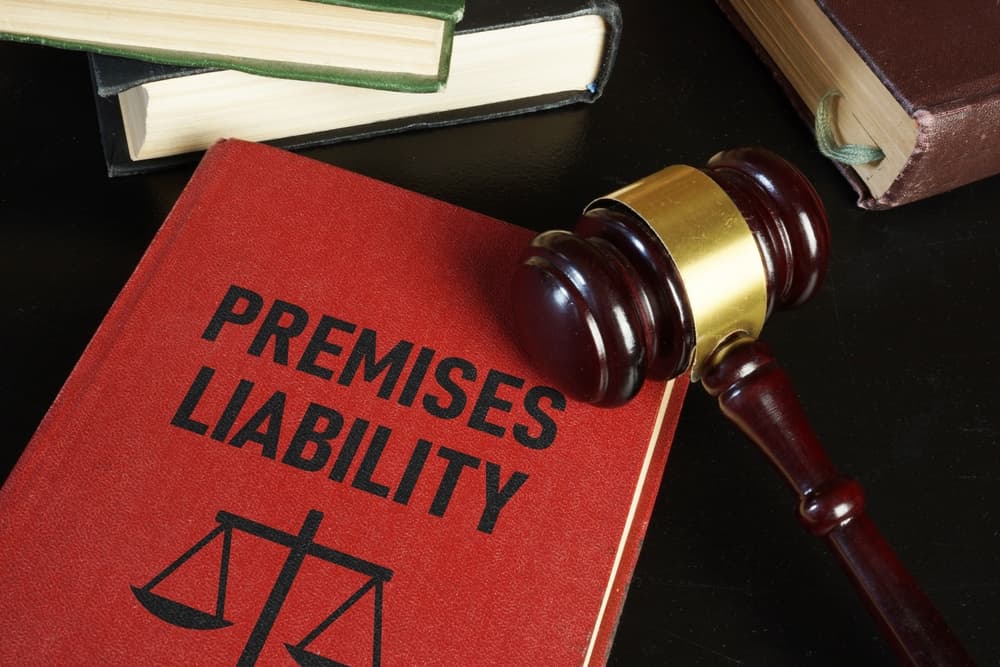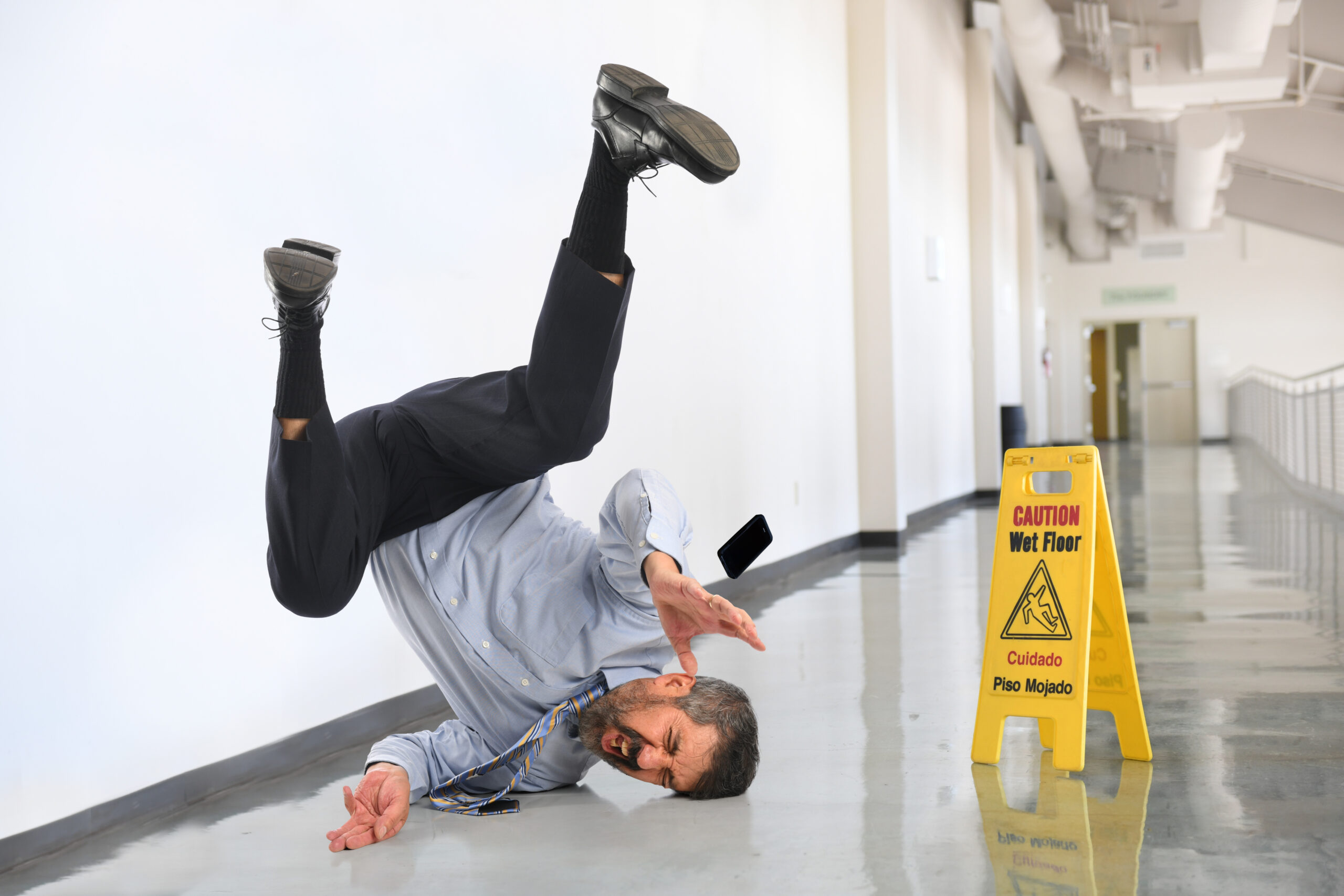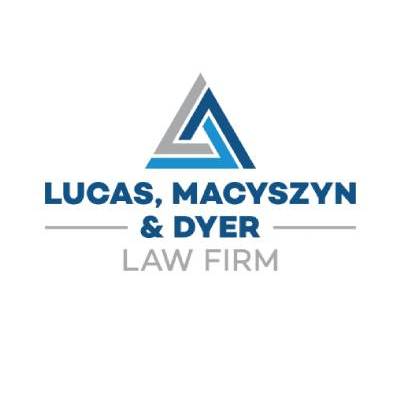
Several factors will determine whether winning your slip and fall case is hard. The strength of evidence is one key factor in determining how difficult it is to get compensation for a slip and fall accident victim.
The effectiveness of your slip and fall accident lawyer is another factor that may determine the outcome of a slip and fall case. If you hire a law firm worthy of your trust, they may get the compensation you deserve.
Who Should Consider Bringing a Slip and Fall Case?
If you slipped, fell, and suffered injuries, you should speak with an attorney about bringing a slip and fall case. You may also talk with an attorney if your loved one fell and died from their injuries.
Fall victims have an attorney take legal action on their behalf because:
- They experience great pain that affects their quality of life
- They face medical expenses
- They cannot work as they usually do, losing income as a result
- They believe negligent parties should be responsible for endangering them and ultimately causing injury
Victims of negligence deserve justice. In many cases, those who slip and fall are victims of negligence. You deserve to pursue justice, and a lawyer will fight to get it for you.
What Does a Lawyer Have to Prove in a Slip and Fall Case?
Negligence is the liability standard in civil cases, including slip and fall cases.
An attorney may prove the negligence of a property owner or other liable party by:
- Establishing that the property owner owed you a duty of care: A duty of care requires that someone take reasonable precautions to protect others. For a property owner or manager, “reasonable precautions” include identifying and neutralizing potential slipping hazards.
- Proving that the property owner breached their duty of care: Your attorney will work to prove that the property owner did not take sufficient steps to locate or remove the slipping hazard that led to your fall.
- Proving that the breach of duty of care caused your fall: Your attorney will aim to establish the connection between the property owner’s actions (or failures) and your fall.
- Connecting the liable party’s negligence to your fall-related damages: Your lawyer will explain how you have suffered because of the liable party’s negligence.
Property owners are generally responsible for their property, so they are common defendants in slip and fall cases. If you can hold someone else legally responsible for your fall and fall-related damages, your attorney will make the case for their negligence.
Evidence an Attorney May Use to Prove Negligence
Your attorney will make a written case for the liable party’s negligence, explaining how the property owner harmed you.
Evidence will lend credibility to the argument, and useful evidence may include:
- Video footage: Video footage is one of the most valuable types of evidence a slip and fall lawyer can secure. If there is footage of your slip, fall, or the conditions that led to the fall, it can be a credit to your case.
- Witness accounts: If a witness saw the conditions that led you to slip or witnessed your fall, their account may support your lawyer’s case for compensation. Eyewitness accounts may be especially valuable if the witness has no reason to fabricate their account.
- Expert accounts: Experts may testify about what liable parties should have done to protect you from harm. Importantly, these experts may testify that liable parties did not take adequate measures to protect you.
Experts may also reconstruct the circumstances of your slip and fall. A physical or digital reconstruction can help illustrate why you fell and how liable parties’ actions contributed to your fall.
Who Is Financially Responsible for a Slip and Fall Accident?
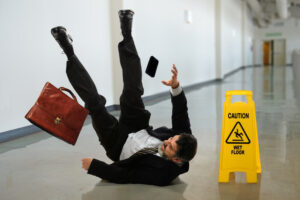 Property owners are often responsible for slip and fall accidents on their premises. Property owners often have insurance (such as homeowners insurance and general liability insurance) that covers falls. Therefore, a property owner’s insurer may owe a fall victim compensation for fall-related damages.
Property owners are often responsible for slip and fall accidents on their premises. Property owners often have insurance (such as homeowners insurance and general liability insurance) that covers falls. Therefore, a property owner’s insurer may owe a fall victim compensation for fall-related damages.
If a property owner or their insurer is not responsible for your fall, your attorney will determine who is.
Failures That May Make a Property Owner Responsible for Your Fall
Property owners are responsible for protecting customers, residents, or others who legally enter their property. These responsibilities include:
Regularly Monitoring the Property
The property owner may monitor their property by:
- Completing walking rounds of the property at regular intervals
- Installing comprehensive video cameras in the interior and exterior of their property
- Instructing employees to be vigilant to hazards
It is not enough for property owners to address hazards as they arise. Instead, owners must take active measures to detect and remove hazards.
Lighting the Premises
Bright lighting may allow employees to spot slipping hazards and increase the chances that guests can avoid slipping hazards. Property owners must identify areas with insufficient lighting to protect others and add brighter or additional lights.
Hiring and Training Employees in Best Safety Practices
The Occupational Safety and Health Administration (OSHA) encourages employers (including property owners) to create a hazard control plan that any employee can follow.
This plan may:
- Explain to the employees of the specific hazards they should look for, including slipping hazards
- Detail where on a premises employees should look for hazards
- Explain how employees should respond to different hazards
- Require employees to report any hazards that they cannot immediately remove
Most property owners cannot be on the premises 24/7. Therefore, they must train others to spot and remove slipping hazards.
Installing Anti-Slip Flooring
Slippery walkways are the clearest hazards for slip and fall accidents. Some flooring, such as tile, poses an outsize risk of falls. Property owners may update their flooring to a less slippery material to protect guests and minimize liability.
Loose flooring, such as an unstapled carpet, may also cause slip and falls or trip and falls. Property owners and their employees must examine flooring and address any slipping hazards as part of regular inspections.
Your attorney will review your fall and identify any failings that caused you harm. The attorney will determine whether a property owner or another party (such as the manufacturer of a defective flooring product) is responsible for your damages.
Challenges to Winning a Slip and Fall Case
Just because someone is liable for your fall-related damages does not mean they’ll hand over your money willingly. However, if an attorney accepts your case, it generally means they believe your case is winnable.
To get the compensation you deserve, your lawyer may need to overcome:
Allegations That You Caused the Slip and Fall Accident
Slip-resistant footwear may reduce instances of falls. Studies like that lay the groundwork for insurance companies and other liable parties to accuse fall victims of causing their own injuries.
Liable parties may also accuse you of:
- Intentionally falling
- Being impaired in some way
- Failing to spot an obvious hazard that the property owner had taken reasonable precautions to protect you from
- Acting in some other way that contributed to your fall
When someone is liable for a fall, the most obvious way to try to avoid a payout is to blame the victim for their fall. A capable attorney will lean on evidence to prove you did not cause your fall.
Insurance Companies’ Bad-Faith Tactics
Insurance companies look out for their financial interests. This can mean withholding compensation from deserving fall victims.
Tactics insurers may use to try and deprive you of fair compensation are:
- Denying your claim by blaming you for the fall
- Offering a lowball settlement, hoping you will accept and free the insurance company from further financial obligations
- Undervaluing specific losses, such as medical costs
- Remaining firm during settlement negotiations
Certain law firms have a reputation for taking slip and fall cases to court. When insurers are dealing with these law firms, they may fear the possibility of a trial. Therefore, an insurer may offer the settlement you deserve—even if it initially resists paying you what you deserve.
Limited Evidence of Negligence
Evidence in some slip and fall cases is stronger than in others. For example, some cases include the slip and fall footage, while others do not. Sometimes, an employee at a fall site may testify that their employer allowed unsafe conditions, but not every defendant has this luxury. you can sue a property owner by getting help from a lawyer.
The more evidence of negligence your lawyer has access to, the stronger their chances of victory.
No matter the details of your case, your attorney should expect to win. While securing fair compensation for a fall victim is never easy, your lawyer will not accept your case if they did not expect to win.
How an Attorney Will Seek to Win Your Slip and Fall Case
Slip and fall lawyers complete every step of their client’s cases. The lawyer allows the client to focus on recovery by managing every detail.
Some of the responsibilities of a slip and fall lawyer are:
- Obtaining all useful evidence: An attorney must move quickly to secure all evidence for their client’s case. Certain evidence can be especially vulnerable to being lost. For example, a business owner may erase security camera footage showing a fall intentionally or in the normal course of turning over their tapes.
- Calculating the value of the case: Lawyers must calculate the cost of their clients’ economic and non-economic damages. This calculation tells the attorney how much money to seek through a settlement or judgment.
- Documenting fall-related damages: During negotiations, you need proof of your fall-related damages. Such documentation can include medical records, images of injuries, medical bills, an employer’s testimony about a fall victim’s inability to work, past income records (for comparison), and expert testimony about damages.
- Dealing with insurance companies: You know the potential threat that insurers can pose. Your attorney will manage dealings with insurers, and this may protect you from attempts to violate your rights. If you need to record or write a statement for insurers, your lawyer will prepare you.
- Leading settlement negotiations: A lawyer negotiates on their client’s behalf. The attorney should enter settlement negotiations with a clear financial target. They should also have documentation and evidence of negligence prepared. A lawyer can negotiate from a strong position with these elements in two.
- Take a case to court, if necessary: Some law firms have a reputation for going to trial, while others may accept an easy settlement that won’t cover your costs. As you research prospective attorneys, consider their case results at trial (or lack thereof).
Most civil cases result in settlements, and slip and fall cases are no exception. However, if liable parties do not offer a fair settlement and a trial becomes necessary, having an attorney willing to go to trial is pivotal.
How a Fall Affects a Victim’s Life
Falls can cause life-changing injuries, especially in vulnerable populations.
Those with fall-related severe injuries may:
- Experience both acute and chronic pain that interferes with exercise, personal responsibilities, independence, and other critical aspects of life.
- Be unable to work and earn a living.
- Face immense financial uncertainty and stress.
- Suffer severe mental health issues.
You may take comfort in having a lawyer fighting for the money you deserve.
Recoverable Damages in a Slip and Fall Case
The harm of fall-related injuries may translate into specific, recoverable damages, including:
- Medical expenses
- Lost income
- Decreased earning capacity
- Pain and suffering
- Treatment for psychological issues
Each slip and fall case involves different damages. Attorneys take a personalized approach to diagnosing damages. Your lawyer will speak with you, consult your doctors, and may collaborate with experts to identify and value your damages.

Find a Slip and Fall Attorney as Soon as Possible
Do not wait to hire a slip and fall lawyer. Slip and fall lawyers often face filing deadlines, and certain evidence can be time sensitive.
Research and find a law firm qualified to lead your fall-related case today. Begin with a free case evaluation to get to know a personal injury attorney in New Port Richey better and learn about your legal rights following a fall injury.

